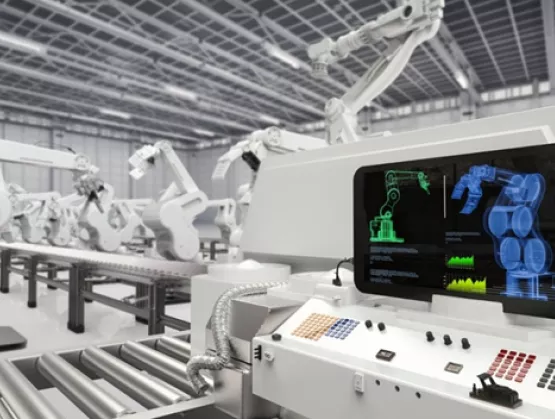
imec, a SEMI Strategic Association Partner, is a member of MADEin4, an ECSEL JU consortium of nearly 50 European manufacturers and research and technology organizations (RTOs) working to drive Industry 4.0 solutions for the European semiconductor manufacturing industry.
SEMI spoke with Valentina Terzieva, Manager EU funded projects at imec, about the vital importance of the consortium in spurring Industry 4.0 advances. imec leads the MADEin4 Requirements, Samples and Industry 4.0 pilot line infrastructure work package.
SEMI: What were the main reasons imec joined the MADEin4 consortium?
Terzieva: imec is the global leader in digital and nano-technologies research and development. MADEin4 gives us the opportunity to contribute our multidisciplinary expertise to the development of technologies alongside experts across the electronic components and systems (ECS) value chain in Europe. MADEin4 targets the development of highly connected cyber-physical systems employing novel Industry 4.0 approaches. By combining metrology data design and analysis with machine learning methods, the MADEin4 project is designed to enable more precise predictive maintenance within automated production lines.
 What does imec see as the key elements of its successful R&D collaboration?
What does imec see as the key elements of its successful R&D collaboration?
Terzieva: The MADEin4 project connects partners with complementary technical expertise and experience in nanoelectronics and digital technologies. MADEin4’s well-established project management structure enables efficient monitoring of the project progress and innovation. MADEin4 consortium partners are highly experienced in multi-party collaborations and familiar with ECSEL JU-funded projects. They share their knowledge and expertise to ensure the project is on track.
What are your recommendations to companies that want to participate in EU-funded collaborative projects?
Terzieva: No national economy or organization can pursue technological development alone. By sharing knowledge, expertise and talent, companies can address fundamental challenges of technological innovation alongside experienced partners. By engaging in collaborative projects, industry, academia and research organizations can innovate to advance the European microelectronics industry and economy as a whole.
What are your expectations for the future of technology R&D in Europe?
 Terzieva: What we see in ECSEL JU projects is continuity as they build on the previous projects’ achievements by addressing specific topics, following technology development from idea generation to application and market implementation. Project partners aim at sustainability of research and development of technologies beyond the project lifetime. Targeted ECS research infrastructures investment, promotion of open access to project data, intellectual property management and uniform geographical distribution of partners are key to sustaining Europe’s future technological leadership.
Terzieva: What we see in ECSEL JU projects is continuity as they build on the previous projects’ achievements by addressing specific topics, following technology development from idea generation to application and market implementation. Project partners aim at sustainability of research and development of technologies beyond the project lifetime. Targeted ECS research infrastructures investment, promotion of open access to project data, intellectual property management and uniform geographical distribution of partners are key to sustaining Europe’s future technological leadership.
How are industry associations like SEMI beneficial to businesses and organizations pursuing innovation in EU-funded projects?
Terzieva: The dissemination of EU-funded projects is a key part of their success. Organizations like SEMI with global reach can help ensure project-developed innovation is meeting the needs of end users. SEMI has deep expertise in networking, connecting industries and professionals, which is exactly what every EU-project needs. With its global reach, SEMI is well-positioned to influence technological developments and policies on regional, national and European levels.
Official disclaimer: MADEin4 has received funding from the ECSEL JU under grant agreement No 826589. The JU receives support from the European Union’s Horizon 2020 research and innovation programme and France, Germany, Austria, Italy, Sweden, Netherlands, Belgium, Hungary, Romania and Israel.
Marek Kysela is EU policy and project coordinator at SEMI Europe.